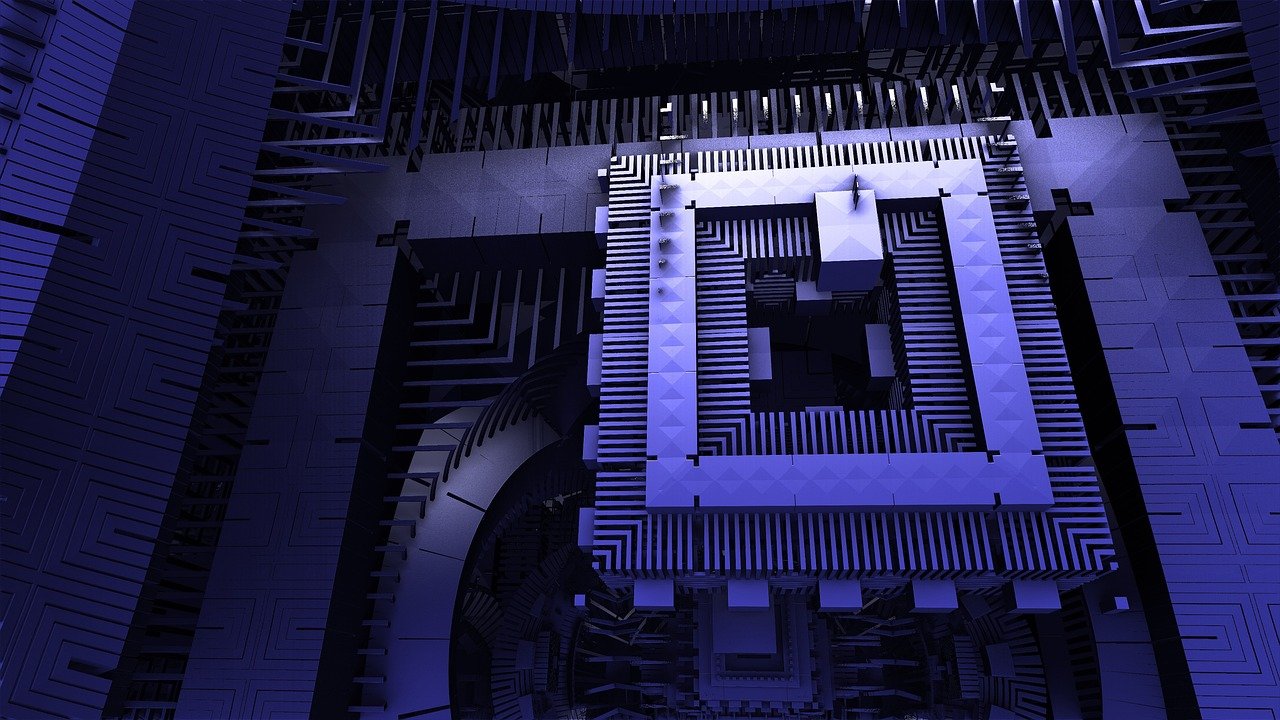
Discover how quantum computing is reshaping cryptography and digital security. Explore the revolutionary impact on data protection and the future of cybersecurity.
Introduction
The impact of quantum computing on cryptography is a growing concern and excitement in cybersecurity. As quantum computers become more powerful, they pose a significant threat to the encryption methods we rely on today to protect sensitive information. This blog post explores how quantum computing is set to revolutionize the field of cryptography and what it means for the future of digital security.
Understanding Quantum Computing
Quantum computing leverages the principles of quantum mechanics to process information in ways that classical computers cannot. Unlike traditional computers that use bits (0s and 1s), quantum computers use quantum bits or qubits. These qubits can exist in multiple states simultaneously, a phenomenon known as superposition. This property and entanglement allow quantum computers to perform specific calculations exponentially faster than classical computers.
Key features of quantum computing:
- Superposition
- Quantum entanglement
- Quantum parallelism
Current Cryptographic Landscape
Before delving into quantum computing’s impact on cryptography, it’s essential to understand the current state of cryptographic systems.
Standard cryptographic algorithms include:
- RSA (Rivest-Shamir-Adleman)
- ECC (Elliptic Curve Cryptography)
- AES (Advanced Encryption Standard)
These algorithms have been the backbone of Internet security for decades, protecting everything from online banking to secure messaging.
How Quantum Computing Threatens Traditional Cryptography

Y-00 Protocol: A Quantum-Resistant Solution
The Y-00 protocol, developed by Northwestern University researchers, is a quantum-resistant encryption method that uses continuous variables in quantum states. It’s designed to withstand attacks from classical and quantum computers, offering a potential solution to quantum threats.
The impact of quantum computing on cryptography is most pronounced in its ability to break many of the public-key cryptographic systems today. Quantum computers can solve specific mathematical problems much faster than classical computers, rendering some encryption methods obsolete.
For example:
- Implemented on a sufficiently powerful quantum computer, Shor’s algorithm can factor large numbers and efficiently solve discrete logarithm problems.
- This capability directly threatens the security of RSA and ECC, two widely used public-key cryptosystems.
The potential consequences are far-reaching. When large-scale quantum computers become available, sensitive, secure information could be decrypted.
Post-Quantum Cryptography: The Next Frontier
Post-quantum cryptography is an important area of research that aims to protect our digital information from future threats. As computers become more powerful, especially with the development of quantum computers, our current encryption methods may become vulnerable. Scientists are working on new ways to keep our data safe and withstand attacks from these advanced machines. These new methods use complex math problems that even quantum computers would struggle to solve.
Preparing for the Quantum Era
As the impact of quantum computing on cryptography becomes more apparent, organizations need to start preparing for the post-quantum era. This preparation involves several steps:
- Crypto-agility: Develop systems that can quickly switch between different cryptographic algorithms.
- Inventory of cryptographic assets: Identify where and how cryptography is used within the organization.
- Risk assessment: Evaluate the potential impact of quantum computing on the organization’s security.
- Education and awareness: Train staff on the implications of quantum computing for cybersecurity.
- Research and development: Invest in or keep abreast of advancements in post-quantum cryptography.
Quantum Key Distribution: A Promising Solution
Quantum Key Distribution is a promising solution for secure communication in the digital age. It uses the principles of quantum mechanics to create unbreakable codes for sending secret messages. Unlike traditional encryption methods, which can be cracked with powerful computers, quantum key distribution relies on the laws of physics to ensure that any attempt to intercept the message will be detected.
Key features of QKD:
1.Quantum Superposition Enables Secure Key Generation
Quantum Key Distribution (QKD) leverages the quantum superposition principle, allowing particles to exist in multiple states simultaneously. This property ensures that any attempted eavesdropping on the key exchange would collapse the quantum state, alerting the communicating parties to potential security breaches.
2. QKD Is Not Quantum Encryption
Contrary to popular belief, QKD doesn’t encrypt messages itself. Instead, it provides a method for securely distributing encryption keys. Once the key is shared, traditional encryption algorithms can be used to secure the actual message transmission.
3. Distance Limitations in QKD Systems
Current QKD technology faces challenges in long-distance communication. Particles’ quantum states degrade over distance, limiting practical implementations to around 100 kilometers without quantum repeaters. Researchers are actively working on extending this range for more widespread adoption.
Challenges and Limitations
Despite the potential of quantum computing to break current cryptographic systems, several challenges and limitations exist:
- Scalability: Building large-scale, stable quantum computers is extremely difficult.
- Error correction: Quantum states are fragile and prone to errors, requiring sophisticated error correction techniques.
- Decoherence: Quantum systems can lose their quantum properties when interacting with the environment.
- Cost: Quantum computers are currently costly to build and maintain.
These factors mean that while quantum computing’s impact on cryptography is significant, practical large-scale quantum computers capable of breaking current cryptographic systems may still be years away.
The Race for Quantum Supremacy
Quantum supremacy is the race to build powerful computers to solve complex problems faster than traditional machines. Big tech companies and scientists are working hard to create these special computers using tiny particles called qubits. These quantum computers could revolutionize fields like medicine, finance, and cryptography.

The potential impact of quantum computing on cryptography has sparked a global race for quantum supremacy. Countries and tech giants are investing heavily in quantum research and development.
This competition is driving rapid advancements in the field, potentially accelerating the timeline for when quantum computers might pose a real threat to current cryptographic systems.
Conclusion
The impact of quantum computing on cryptography is set to revolutionize digital security. While quantum computers pose a significant threat to current encryption methods, they also offer opportunities for more secure communication through quantum cryptography and QKD. As we move towards the quantum era, organizations and individuals must stay informed and prepare for the changes ahead.
The future of cryptography in a post-quantum world remains an exciting and challenging frontier. By understanding the implications of quantum computing and taking proactive steps, we can ensure that our digital communications remain secure in the face of this technological revolution.
FAQ
Q1: What is quantum computing?
Quantum computing is a new type of computing that uses the principles of quantum mechanics to process information. It has the potential to solve complex problems much faster than traditional computers.
Q2: How does quantum computing affect cryptography?
Quantum computing could break many encryption methods, making them less secure. This is pushing the development of new, quantum-resistant encryption techniques.
Q3: Will quantum computers make all current encryption useless?
Not immediately. While quantum computers pose a threat to some encryption methods, many experts are working on developing new, quantum-resistant encryption techniques.
Q4: When will quantum computers be able to break current encryption?
It’s hard to predict exactly, but many experts estimate it could happen within the next 10-20 years. However, this timeline is uncertain and could change.
Q5: What is quantum-resistant cryptography?
Quantum-resistant cryptography refers to encryption methods designed to be secure against both quantum and classical computers. These new methods are being developed to protect data in the future.
Q6: Should I be worried about my data now?
While it’s good to be aware, there’s no need for immediate panic. Many organizations are already working on updating their security measures to prepare for the quantum era.
Q7: How will quantum computing change internet security?
A: Quantum computing will likely lead to significant changes in securing online communications and transactions. This includes new encryption methods and possibly quantum key distribution.
Q8: What industries will be most affected by quantum computing’s impact on cryptography?
Finance, healthcare, government, and any industry that deals with sensitive data will need to adapt their security measures. However, all sectors using digital communication will be affected to some degree.
Q9: Can quantum computing be used to improve cryptography?
Yes, quantum computing can also be used to create more secure encryption methods. Quantum key distribution, for example, uses quantum principles to securely share encryption keys.
Q10: How can I prepare for the quantum computing era in cryptography?
Stay informed about developments in quantum-resistant cryptography. If you’re responsible for data security in your organization, consider talking to experts about gradually transitioning to quantum-safe methods.
QUIZ
[HDquiz quiz = “198”]


Leave a Comment
Your email address will not be published. Required fields are marked *